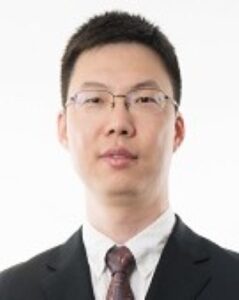ACIRA 2025
Keynote Speakers
Prof. Yutong Lu, Sun Yat-sen University
Biography:
Professor Lu is currently a professor at the School of Computer Science at Sun Yat-sen University, Director of the National Supercomputing Center in Guangzhou, Director of the Supercomputing Engineering Software Research Center of the Ministry of Education, and a Fellow of the International Supercomputing Science and Technology Center (ISC). She formerly served as Deputy Director of the Software Institute at the School of Computer Science at the National University of Defense Technology and Deputy Chief Engineer of the Galaxy Tianhe Project. She is the leader of an innovation team under the Guangdong Pearl River Talent Program, a “Young and Middle-aged Expert with Outstanding Contributions” in the National Hundred, Thousand, and Ten Thousand Talents Program, a recipient of the State Council Special Government Allowance, the leader of an innovation team in a key field of the Ministry of Science and Technology, and a National March 8th Red Flag Bearer.
Professor Lu has long been engaged in the research and implementation of domestically produced large-scale parallel system software for high-performance computing, and participated in the development of five generations of the Galaxy system and two generations of the Tianhe system. Addressing the challenges of achieving high performance, high scalability, high reliability, and ease of use in high-performance computing systems, he has achieved a series of important technological innovations and breakthroughs in core high-performance computing system software research areas, including independent high-speed interconnect communication software systems, parallel message passing program operation support systems, large-scale parallel file systems, and large-scale resource management systems. He has delivered keynote speeches at numerous top international supercomputing conferences, including SC, ISC, and IPDPS. He serves as Associate Editor of IEEE TPDS, General Chair of ISC2019 and HPCAsia2019, and TPC of several major international conferences.
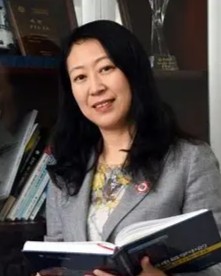

Prof. Yiu-ming Cheung, Hong Kong Baptist University(China·Hong Kong)
Biography:Yiu-ming Cheung is currently a Chair Professor (Artificial Intelligence) of the Department of Computer Science, Dean of Institute for Research and Continuing Education (IRACE), and Associate Director of Institute of Computational and Theoretical Studies in Hong Kong Baptist University (HKBU). He received PhD degree from Department of Computer Science and Engineering at The Chinese University of Hong Kong in 2000, and then joined the Department of Computer Science at HKBU in 2001. He is a member of European Academy of Sciences and Arts, and an IEEE Fellow, AAAS Fellow, IAPR Fellow, IET Fellow, and British Computer Society (BCS) Fellow. He is the awardee of RGC Senior Research Fellow with receiving a fellowship grant of HK$7.8 million over a period of 60 months. Since 2019, he has been ranked the World’s Top 1% Most-cited Scientists in the field of Artificial Intelligence and Image Processing by Stanford University for seven consecutive years. Furthermore, he has been elected as a Distinguished Lecturer of IEEE Computational Intelligence Society, and named a Chair Professor of Changjiang Scholars Program by the Ministry of Education of the People’s Republic of China for the dedication and exceptional achievements in his academic career. In addition, he is serving as the Editor-in-Chief of IEEE Transactions on Emerging Topics in Computational Intelligence.
Prof. Gary G. Yen, Oklahoma State University (USA)
Biography: Gary G. Yen received his Ph.D. degree in electrical and computer engineering from the University of Notre Dame in 1992. He was a Regents Professor in the School of Electrical and Computer Engineering, Oklahoma State University. He recently joined Sichuan University, College of Computer Science as a Chair Professor. His research interest includes intelligent control, computational intelligence, evolutionary multiobjective optimization, conditional health monitoring, signal processing and their industrial/defense applications.
Gary was an associate editor of the IEEE Transactions on Neural Networks, IEEE Transactions on Evolutionary Computation, IEEE Transactions on Emerging Topics on Computational Intelligence, and IEEE Control Systems Magazine during 1994-1999, and of the IEEE Transactions on Control Systems Technology, IEEE Transactions on Systems, Man and Cybernetics: Part A. Systems and IFAC Journal on Automatica and Mechatronics during 2000-2010. He is currently serving as an associate editor for the IEEE Transactions on Cybernetics and IEEE Transactions on Artificial Intelligence. Gary served as Vice President for the Technical Activities, IEEE Computational Intelligence Society in 2004-2005 and was the founding editor-in-chief of the IEEE Computational Intelligence Magazine, 2006-2009. He was elected to serve as the President of the IEEE Computational Intelligence Society in 2010-2011 and is elected as a Distinguished Lecturer for the term 2012-2014, 2016-2018, 2021-2023, and 2025-2027. He received Regents Distinguished Research Award from OSU in 2009, 2011 Andrew P Sage Best Transactions Paper award from IEEE Systems, Man and Cybernetics Society, 2013 Meritorious Service award from IEEE Computational Intelligence Society and 2014 Lockheed Martin Aeronautics Excellence Teaching award. He is a Fellow of IEEE, IET and IAPR.
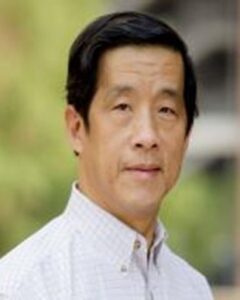
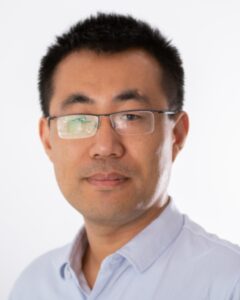
Prof. Shuai Li, University of Oulu (Finland)
Biography: Prof .Li is presently a full professor with University of Oulu, Finland and an adjunct professor with National Research Center of Finland (VTT). His research area covers robotic manipulation, calibration and multi-robot cooperation. He has published over 300 peer-review papers with a total citation for 24,000 and H-index 85 (Google Scholar). He is presently a fellow of European Academy of Sciences, Institution of Engineering and Technology, British Computer Society, Asia-Pacific Artificial Intelligence Association.
Prof. Yun Li Shenzhen Institute for Advanced Study
Biography: Li Yun (IEEE Fellow) holds a bachelor’s degree from Sichuan University in Chengdu, a master’s degree from University of Electronic Science and Technology of China in Chengdu, and a doctorate from the University of Glasgow Strathclyde in the UK. In 1989, he served as a control engineer at the National Engineering Laboratory in Glasgow, UK. In 1990, he served as a postdoctoral research engineer at Glasgow Industrial Systems and Controls LTD. From 1991 to 2018, he served as a lecturer, senior lecturer and professor at the University of Glasgow. He is currently a professor at the UESTC Shenzhen Advanced Research Institute in Shenzhen, China. Since 1991, his research interest has been computational artificial intelligence and its applications. He has written or co-authored 270 articles, and one of them has been the most popular article of the month since its publication in IEEE Transactions on Control System Technology. Professor Li Yun, as a distinguished talent professor at the Institute for Advanced Studies of University of Electronic Science and Technology of China (Shenzhen), a Fellow of the Institute of Electrical and Electronics Engineers (IEEE Fellow) and the Royal Society of Arts (FRSA), and a member of the “Top 2% Scientists in the World”, has been nominated as a member of Sigma Xi. Currently serving as the IEEE Transactions on Neural Networks and Learning Systems and IEEE Transactions on Emerging Topics in Computational Associate editor of two top international journals in Intelligence. He once served as the founding director of the “Industry 4.0 Artificial Intelligence Laboratory” in Dongguan City as a short-term overseas expert under the “Pearl River Talent Program”, and later as the technical director and non-executive director of i4AI Company in London, UK.
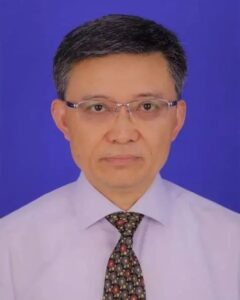

Prof. Carlos A. Coello Coello Tecnologico de Monterrey Monterrey, N.L., (Mexico)
Biography:Carlos A. Coello Coello (Fellow, IEEE) received the Ph.D. degree in computer science from Tulane University, New Orleans, LA, USA, in 1996.,He is a Professor (CINVESTAV-3F Researcher) with the Department of Computer Science, CINVESTAV-IPN, Mexico City, Mexico. He has authored or co-authored over 550 technical papers and book chapters. He has also co-authored the book Evolutionary Algorithms for Solving Multi-Objective Problems (Second Edition, Springer, 2007). His publications currently report over 63 300 citations in Google Scholar (his H-index is 96). His research interests include evolutionary multiobjective optimization and constraint-handling techniques for evolutionary algorithms.,Prof. Coello Coello is a member of the Association for Computing Machinery and the Mexican Academy of Science. He was a recipient of the 2007 National Research Award from the Mexican Academy of Sciences in the area of exact sciences; the 2013 IEEE Kiyo Tomiyasu Award; and the 2012 National Medal of Science and Arts in the area of physical, mathematical, and natural sciences. He is the Editor-in-Chief of IEEE Transactions on Evolutionary Computation.
Prof. Hu Guoqiang Nanyang Technological University(Singapore)
Biography: Dr. Guoqiang Hu is currently a Professor of Intelligent Systems and Robotics in the School of Electrical and Electronic Engineering at Nanyang Technological University, Singapore. He received Ph.D. in Nonlinear Control and Robotics from University of Florida. His research interests include optimization and control, game theory, and AI algorithms, with applications to human-robot collaboration, collaborative robots, and multi-robot systems. He serves/served as Associate Editor for IEEE Transactions on Automatic Control (2019-2025) and Automatica (2025-2028), Technical Editor for IEEE/ASME Transactions on Mechatronics (2017–2020), and Associate Editor for IEEE Transactions on Automation Science and Engineering (2017–2020). He also served as Program Chair/Co-Chair for IEEE ICCA 2016, IEEE IECON 2020 and IEEE CDC 2023, and General Chair for ICARCV 2018 and IEEE ICCA 2020.
